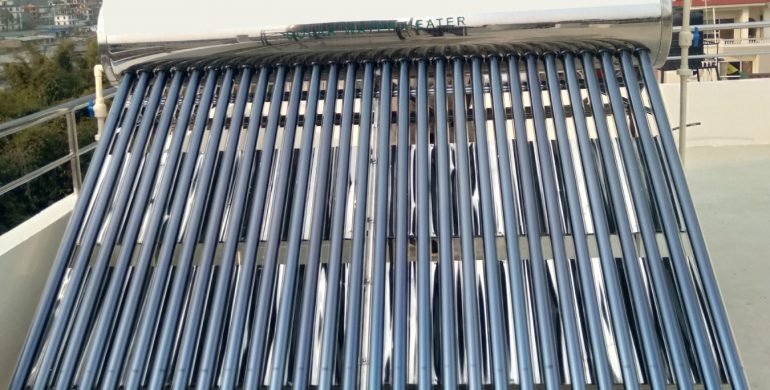Open Loop System Vs. Closed Loop System in Solar Water Heater

Solar Water Heater can be classified into two systems, based on basic heat transfer mechanism. They are
- Open Loop System or Direct Heating System
- Closed Loop System or Indirect Heating System
Open Loop System
- The collector panels heats the water directly from the sun radiations and then the heated water is stored in the storage tank. From storage tank, hot water is then supplied to faucets, fixtures and appliances inside our homes. So this system is also called as direct system.
- This system is commonly used in residential houses in Nepal.
- Open loop systems are more efficient in those climates where we have less freezing environment over a longer period of the year.
- For long periods the open loop system are better not be installed in icy cold temperatures.
- This system is of low cost and has high efficiency.
- However, system is prone to freeze damage.
- Also this system is only feasible for the water which meets the quality standards.
Closed Loop System
- The water does not get directly heated. Instead it gets heated indirectly using antifreeze solutions (water and glycol) through heat exchangers which transfers the heat from the solution to the water. So, the system is known as indirect heating system.
- Close loop system are efficient in icy cold temperatures with temperature below 2 degree Celsius than the open loop system.
- This system is of high cost as the water is not heated directly and additional requirements are needed.
- It has comparatively lower efficiency due to heat loss through exchangers.
- This system is immune to freeze damage.
- Also this system is feasible for the water that doesn’t match the quality standards.
In both of these systems, the heat loss can be minimum by placing the hot water pipes in the warmer area of homes and by keeping minimal distance between the solar panels and the storage tanks. Also, the pipe can be insulated to reduce heat loss through pipes if necessary.
Latest posts by admin (see all)
- Ways to prolong the lifespan of electrical systems - July 14, 2024
- How to unclog a shower drain - July 11, 2024
- Different types of Chiller system. - July 8, 2024


